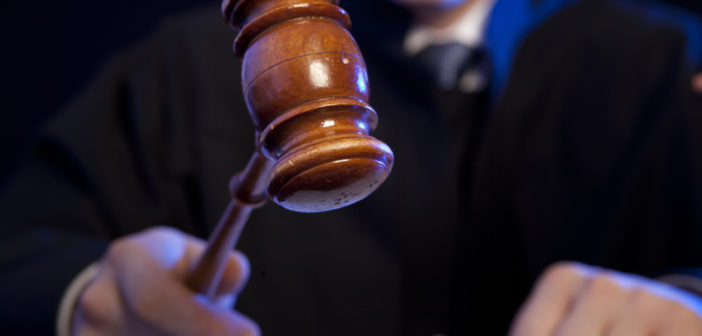After President Trump issued an Aug. 6 executive order banning TikTok from operating in the U.S., the communication and information-sharing platform sued in federal court alleging violations of Fifth Amendment due process protections and the First Amendment.
“The President’s executive order is unconstitutional and ultra vires, and must be enjoined,” wrote John Hall, an attorney for TikTok, in an Aug. 24 complaint. “The executive order seeks to ban TikTok purportedly because of the speculative possibility that the application could be manipulated by the Chinese government.”
For his part, President Trump alleges potential spying in the executive order.
“[TikTok’s] data collection threatens to allow the Chinese Communist Party access to Americans’ personal and proprietary information — potentially allowing China to track the locations of Federal employees and contractors, build dossiers of personal information for blackmail, and conduct corporate espionage,” the order states.
“This is the first time the International Emergency Economic Powers Act (IEEPA), which allows the president to regulate economic transactions in a national emergency, is being used against a global technology company,” said George Farag, an expert in U.S. visa policy who served as a diplomat and consular officer at American embassies in Iraq and Lebanon. “If the ruling is in favor of the administration and a precedence is set foreign tech companies may be forced to consider relationships directly with the White House at time when the U.S. is facing a national emergency.”
Filed in the Central District of California, TikTok’s suit seeks a declaratory judgment that President Trump’s order is unlawful and unconstitutional and an order invalidating it.
“The President’s actions clearly reflect a political decision to campaign on an anti-China platform,” Mr. Hall, TikTok’s attorney, stated. “As the 2020 election approaches, President Trump has consistently referred to COVID-19 as the ‘Wuhan virus,’ ‘China virus,’ and ‘Kung Flu,’ despite previous public statements by officials in his own administration that such terms were ‘highly offensive’ and ‘hurtful.’”
Mr. Farag believes the executive ban’s harm could extend to foreign tech workers based in the U.S.
“Other foreign technology companies with a large American user base may be accused of espionage for their national governments and foreign workers at TikTok’s American offices are likely extremely concerned about losing their employment visa, which affords them the right to legally live and work in the U.S. and is based on their employment,” he said in an interview.
The IEEPA empowers any U.S. president with the authority to ban certain transactions in the interest of U.S. national security against threats from overseas.
As a result, foreign technology companies wishing to operate in the U.S. may find more it more difficult to hire foreign workers as the federal government increases restrictions on employment visas, according to Mr. Farag.
However, TikTok argues in its brief that it is a U.S. company with offices in Los Angeles and hundreds of staffers across the nation.
“If the court rules in favor of the Trump Administration, it is possible that other foreign tech companies, particularly those based in countries with escalating tension with the United States, will have to re-evaluate business operations in America,” Mr. Farag told PacerMonitor News. “This includes the risk of hiring foreigners to work in American offices, the storage of American user data on foreign servers, and the potential of being labeled a threat to national security by the U.S. government.”
Underlying the lawsuit is the perception that storing American user data on foreign servers is allegedly leading to greater risk that a user’s personal information could fall into the hands of foreign actors and be compromised, according to Farag, but that fear could put the U.S. at a severe disadvantage.
“If we block highly trained foreign workers from coming here, first, it’s going to hurt us because we’re not going to have the talent we need in order to continue to compete and, later on, it’s also going to hurt us because we’re not going to have those connections with the talent that we trained,” said Professor Anat Alon-Beck, assistant professor of law at Case Western Reserve University School of Law.
In addition, a decline in entrepreneurship and new venture formation has been occurring since 2018 and 45% of businesses are experiencing a moderate negative effect as a result of COVID-19, according to U.S. Census Bureau data.
“A lot of the entrepreneurs in the United States are actually those immigrants who are coming from other countries,” said Ms. Beck, an international business and tech law expert. “That’s something Americans should be worried about because we are a nation that’s built on entrepreneurship and innovation.”






